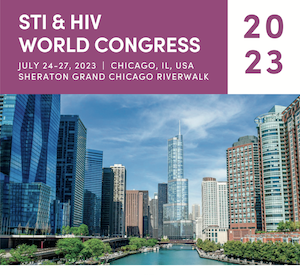Clinical Science
Session: HIV PrEP, Viral STIs
O5.5 - Pritelivir for the treatment of resistant HSV infections in immunocompromised patients: update on an ongoing Phase 3 trial and Early Access Program
Tuesday, July 25, 2023
15:30 - 15:45 CST
Location: Chicago 9

Alexander Birkmann, PhD
Head of Research
AiCuris Anti-Infective Cures AG, Germany
Primary Presenter(s)
Background
Pritelivir is an anti-HSV helicase-primase inhibitor that is currently in Phase 3 clinical development for the treatment of acyclovir-resistant HSV infection in immunocompromised patients, where a high medical need exists. In the ongoing PRIOH-1 trial, efficacy of pritelivir is compared to foscarnet, the only FDA-approved treatment option for acyclovir-resistant HSV infections. Patients with infections resistant to foscarnet or who are intolerant to foscarnet, are also eligible for the trial.
For patients that are ineligible for trials or approved treatment options, a global Early Access Program (EAP) is offered.
Methods
The randomized, open-label PRIOH-1 trial was started as Phase 2 (Part A and B) and has been rolled over into Phase 3. Patients are treated with 100 mg pritelivir orally or foscarnet IV (standard dosing) for up to 42 days (Part C). Patients that are also resistant to foscarnet or who cannot tolerate foscarnet receive 100 mg pritelivir orally for up to 42 days (Part D).
The EAP provides exactly this treatment for the same patient population. Although the EAP is not a clinical trial, information on safety and, where possible, on efficacy, is collected.
Results
Phase 2 trial showed that pritelivir was well tolerated. There were no significant safety findings. No treatment related serious adverse events or reactions were reported. Of 23 subjects treated with pritelivir, 19 (83%) demonstrated full resolution of their HSV lesions within the treatment period. Currently, 58 sites in 12 countries are active in the PRIOH-1 Phase 3 trial. The demand has been greatest for patients with double-resistant infections or who are foscarnet intolerant.
In the EAP, 53 unique patients have undergone up to 6 treatment cycles resulting in 69 individual treatments so far. No treatment related serious adverse events were reported. Pritelivir treatment led to complete healing in 61% (42/69).
Conclusion
Pritelivir treatment was well tolerated and led to healing in 60% to 80% of patients with acyclovir resistant HSV infection. The high participation rate in Part D and in the EAP stresses the unmet need, especially in those patients with infections that are resistant to acyclovir and foscarnet or who are foscarnet intolerant.
Pritelivir is an anti-HSV helicase-primase inhibitor that is currently in Phase 3 clinical development for the treatment of acyclovir-resistant HSV infection in immunocompromised patients, where a high medical need exists. In the ongoing PRIOH-1 trial, efficacy of pritelivir is compared to foscarnet, the only FDA-approved treatment option for acyclovir-resistant HSV infections. Patients with infections resistant to foscarnet or who are intolerant to foscarnet, are also eligible for the trial.
For patients that are ineligible for trials or approved treatment options, a global Early Access Program (EAP) is offered.
Methods
The randomized, open-label PRIOH-1 trial was started as Phase 2 (Part A and B) and has been rolled over into Phase 3. Patients are treated with 100 mg pritelivir orally or foscarnet IV (standard dosing) for up to 42 days (Part C). Patients that are also resistant to foscarnet or who cannot tolerate foscarnet receive 100 mg pritelivir orally for up to 42 days (Part D).
The EAP provides exactly this treatment for the same patient population. Although the EAP is not a clinical trial, information on safety and, where possible, on efficacy, is collected.
Results
Phase 2 trial showed that pritelivir was well tolerated. There were no significant safety findings. No treatment related serious adverse events or reactions were reported. Of 23 subjects treated with pritelivir, 19 (83%) demonstrated full resolution of their HSV lesions within the treatment period. Currently, 58 sites in 12 countries are active in the PRIOH-1 Phase 3 trial. The demand has been greatest for patients with double-resistant infections or who are foscarnet intolerant.
In the EAP, 53 unique patients have undergone up to 6 treatment cycles resulting in 69 individual treatments so far. No treatment related serious adverse events were reported. Pritelivir treatment led to complete healing in 61% (42/69).
Conclusion
Pritelivir treatment was well tolerated and led to healing in 60% to 80% of patients with acyclovir resistant HSV infection. The high participation rate in Part D and in the EAP stresses the unmet need, especially in those patients with infections that are resistant to acyclovir and foscarnet or who are foscarnet intolerant.

